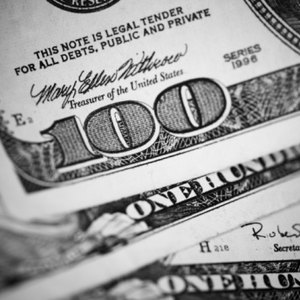
Title loans are popular but expensive short-term consumer loans that are secured by the title to the borrower’s automobile. Title loan companies operate out of storefront offices and shopping malls in towns and cities in approximately half of the states. Consumer protection groups complain that title lenders prey on those who are economically disadvantaged. There is no specific title loan law in South Carolina, but title lenders operate there generally under South Carolina Code of Laws Title 37, the Consumer Protection Code -- Loans.
South Carolina Law
Title loans in South Carolina begin at $601 because the state limits, or caps, the maximum allowable interest rate on consumer loans through $600. Consumer loans beginning at $601, therefore, are not subject to the interest rate cap. The state allows six renewals of consumer loans. Critics say that South Carolina allows title loans via a loophole.
How Title Loans Work
A customer whose automobile is fully paid for can obtain a loan for 30 percent to 50 percent of the car’s value. The highest advertised loan amount has been $10,000. The average annual interest rate is 25 percent. The borrower hands over the car’s title and a spare set of keys and then signs a loan application and promissory note. The loan will typically be due for repayment of principal and interest in 30 days.
Loan Renewals
Title lenders will usually allow as many loan renewals, or rollovers, as the state allows. South Carolina allows six rollovers. Each time a borrower rolls over a loan, he pays the interest or finance charge. If the state allows loans to be rolled over each month, the borrower will eventually pay a finance charge of 300 percent (annual percentage rate).
Loss of Automobile
If a borrower fails to repay a title loan as originally agreed, the lender has the right to use the keys in his possession and repossess the customer’s car. Further, he has the legal right to sell the car and keep all the money from the sale, no matter what the unpaid balance of the loan is.
References
- ConsumerAffairs.com: Car Title Loans -- The Latest Predatory Lending Tactic
- Bankrate.com; Car Title Lending: Short-Term Fix With Long-Term Expense; Kristin Arnold ; November 2005
- Consumer Financial Protection Bureau. "Car Title Loans." Accessed April 21, 2020.
- The Pew Charitable Trusts. "Auto Title Loans," Page 3. Accessed April 21, 2020.
- Consumer Federation of America. "Driven into Debt: CFA Car Title Loan Store and Online Survey," Page 2. Accessed April 21, 2020.
Writer Bio
Charles Crawford, a former commercial banker, has been a business writer in New York since 1990. He has produced marketing materials for an executive outplacement firm, written the quarterly newsletter of a medical nonprofit organization and created financing proposals/business plans. Crawford holds a Bachelor of Arts in English and a Master of Science in international affairs from Florida State University.

